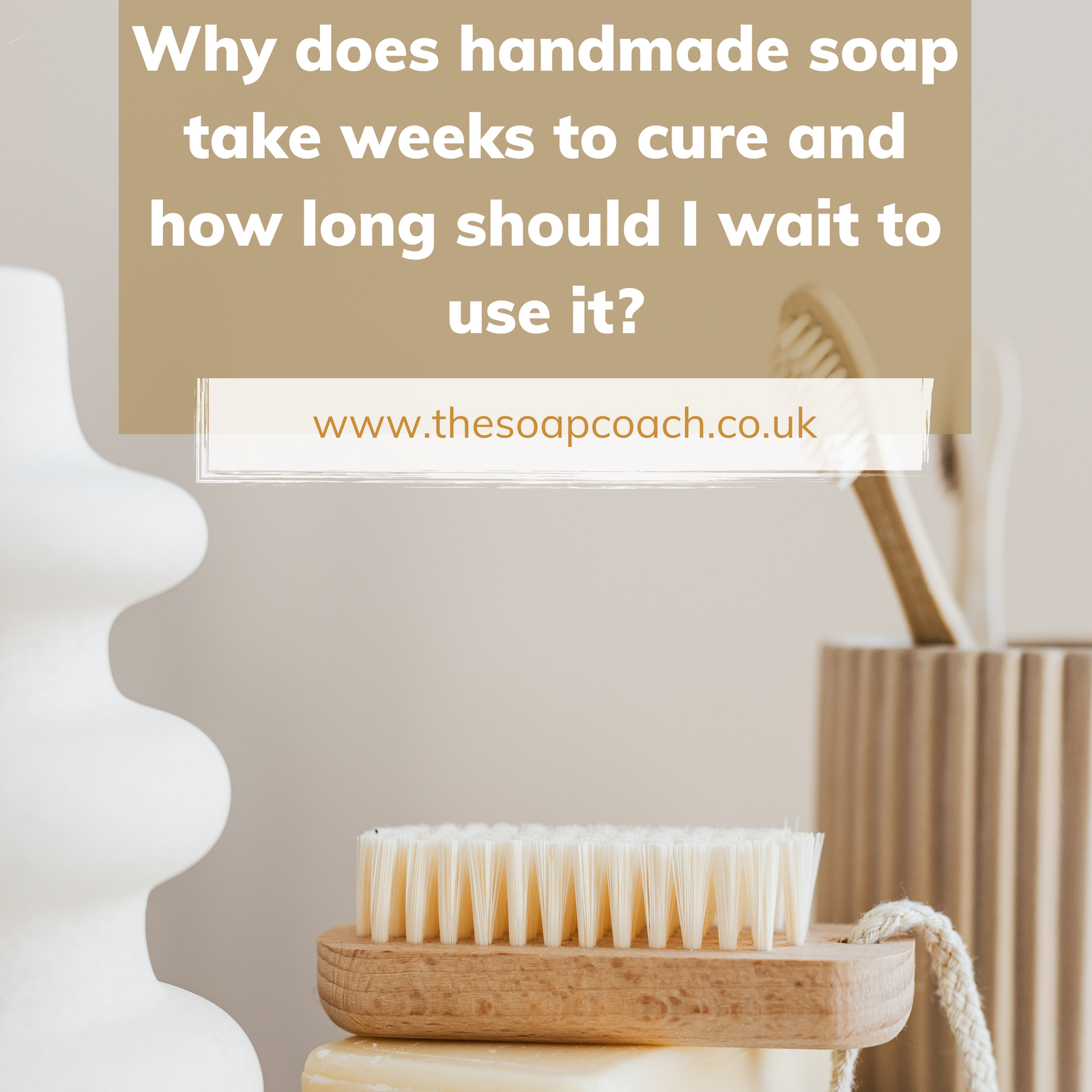Why does handmade soap take weeks to cure and how long should I wait to use it?

Handmade soap can take weeks and even months in some cases to cure.
What exactly is happening whilst my soap cures? Can I use it before it is fully cured? What happens if I don't leave my soap to cure?
This post has come about following on from a lengthy conversation with my very science orientated 16 year old son who after trying to make the subject simple for me announced 'I don’t think you can make it easy or everyone would have a chemistry degree'
I am not one for giving up so here goes.
How is soap formed and what happens during the curing process?
When you mix butters and oils which are also known as triglycerides with sodium hydroxide they break down in to their core components namely glycerine and fatty acids. Depending on your choice of butters and oils some will be short chain fatty acids and some will be longer chain fatty acids - more about that in a moment.
The chemical formula of sodium hydroxide is NaOH. Na is Sodium and Hydroxide is OH. Hang on to the OH bit.
I will try and keep this simple….
The fatty acids combine with the OH (hydroxide) to create sodium salts also known as soap but the process is not complete at this stage. The sodium salts need to further align themselves into complex structures called soap crystals.
Whilst your soap batter is still liquid, short chain fatty acids begin to form into salt crystals together with some of the longer chain fatty acids. Saponification is complete within around 48 hours, ie all the hydroxide has been turned in to sodium salts but during the continuing cure time the longer chain fatty acids are still busy queuing to rearrange themselves into soap crystals and this is what helps your soap to become harder as time goes on not just the water evaporation which mostly occurs within the first 2 weeks.

If you use your soap before it has fully cured it will dissolve more quickly not just because it has a higher water content but because not all of the longer chain fatty acids have formed soap crystals at that point and it is the crystalline component of soap that is predominantly made up of longer chain soaps which gives hardness and durability.
So what about hot process soap? Well you are in effect forcing your soap through saponification and soap crystals are forming much more quickly - in effect you are speeding up the movement of the queue for the fatty acids to rearrange themselves in to soap crystals. Although your hot process soap is safe to use after it has cooled there will still be a ‘queue’ and therefore it does still benefit from some time on the curing shelf.

Being slightly impatient I have always used my hot process soap much faster than cold process but I do recommend a ‘cure time’ of a couple of weeks at least if you can and this really helps me understand why it is so important.
This is a very simplified version of the science behind the soap. I would like to credit Scott Grainger from www.cosmeticsafetyassessment.com This blog has been created and paraphrased, with his permission, from information he has supplied to the soap making community.
Hi Cathy, yes as long as it is not too soft and it isn’t airtight that would be an option although it wouldn’t be my preference unless you used a hefty water discount as the excess water does need to evaporate.
Can I wrap home made soap after 24 hours? I’ve been putting them in bags with jute ties, not air tight.
Thank you!
Thank you for this information
. I’m working on making natural soaps to help heal skin and face. Thank you
Hi Candy, it depends on the regulations in your country – here in the UK we have to do lots of admin before we can sell soap
Thank you for the information of making soap. I am not working and looking for something to start a business. Can I sell the soap that I will be making?
Leave a comment